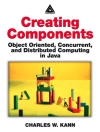Copy the following link for free access to the first chapter of this title: http://www.springerlink.com/content/j23468h304310755/fulltext.pdf
This book is a warning. It aims to warn policy-makers, industry, academia, civil society organisations, the media and the public about the threats and vulnerabilities facing our privacy, identity, trust, security and inclusion in the rapidly approaching world of ambient intelligence (Am I).
In the near future, every manufactured product – our clothes, money, appliances, the paint on our walls, the carpets on our floors, our cars, everything – will be embedded with intelligence, networks of tiny sensors and actuators, which some have termed “smart dust”. The Am I world is not far off. We already have surveillance systems, biometrics, personal communicators, machine learning and more. Am I will provide personalised services – and know more about us – on a scale dwarfing anything hitherto available.
In the Am I vision, ubiquitous computing, communications and interfaces converge and adapt to the user. Am I promises greater user-friendliness in an environment capable of recognising and responding to the presence of different individuals in a seamless, unobtrusive and often invisible way. While most stakeholders paint the promise of Am I in sunny colours, there is a dark side to Am I.
This book aims to illustrate the threats and vulnerabilities by means of four “dark scenarios”. The authors set out a structured methodology for analysing the four scenarios, and then identify safeguards to counter the foreseen threats and vulnerabilities. They make recommendations to policy-makers and other stakeholders about what they can do to maximise the benefits from ambient intelligence and minimise the negative consequences.
Tabela de Conteúdo
Foreword by Emile Aarts. Foreword by Gary Marx. Preface. An Executive Summary for Hasty Readers. 1. Introduction. 2. The Brave New World of Ambient Intelligence. 3. Dark Scenarios. 4. Threats and Vulnerabilities. 5. Safeguards. 6. Recommendations for Stakeholders. 7. Conclusions. 8. References. List of Contributors.












